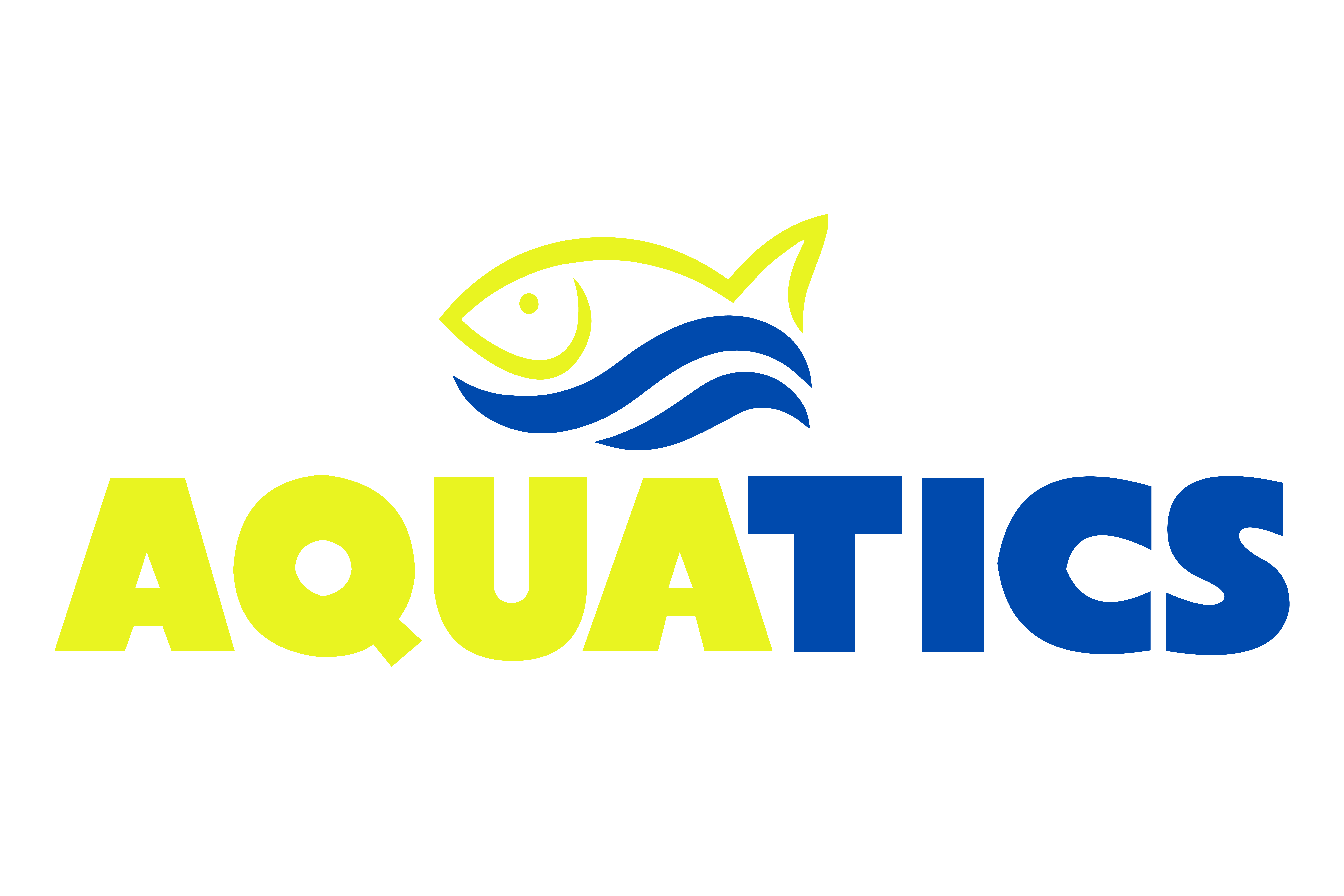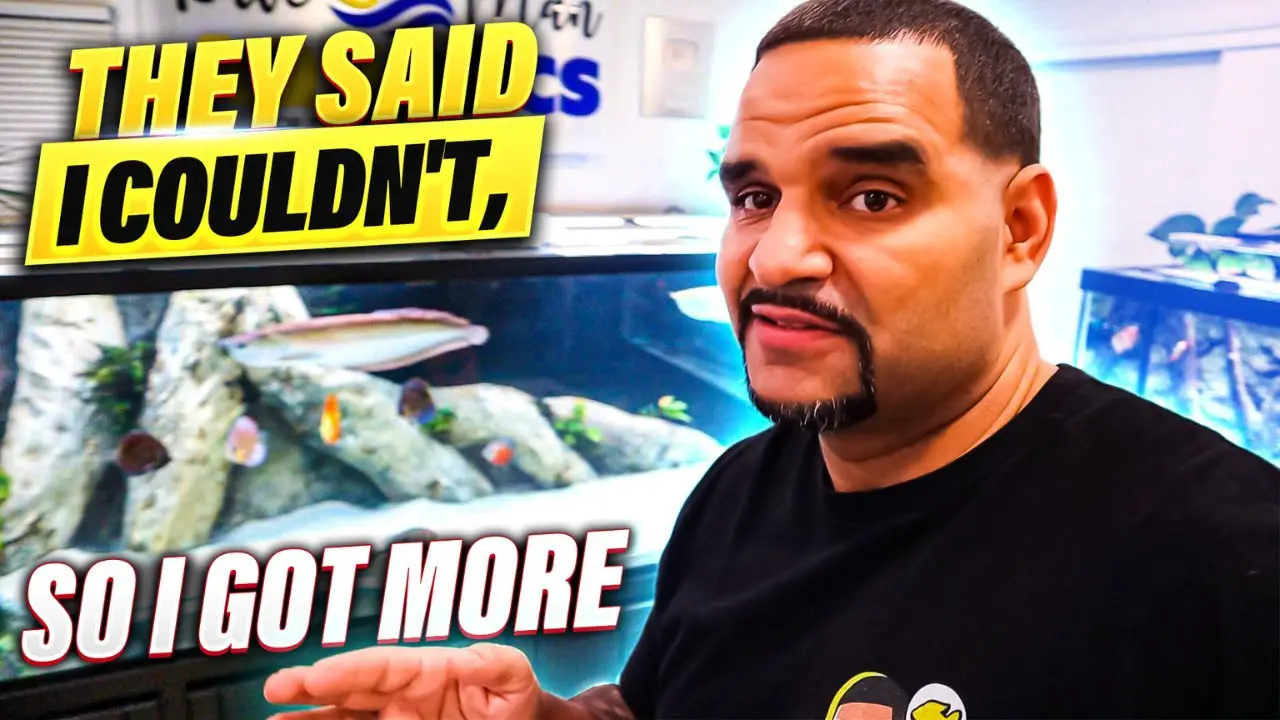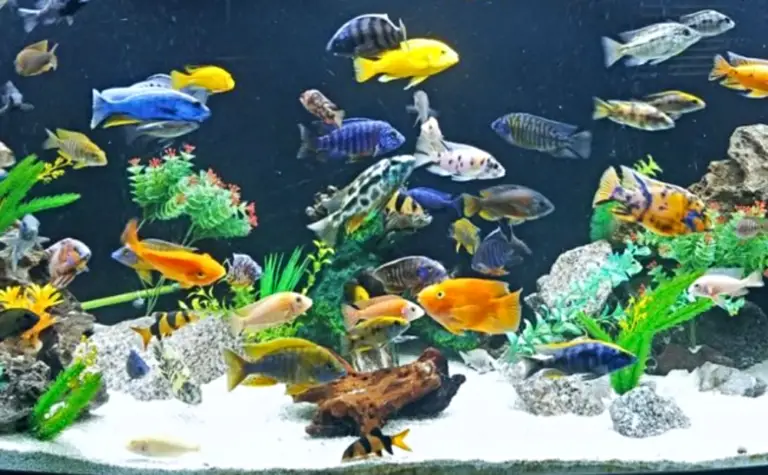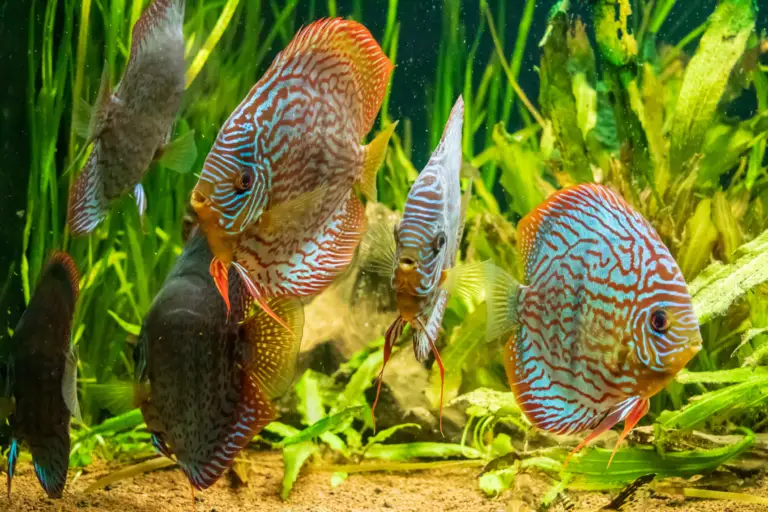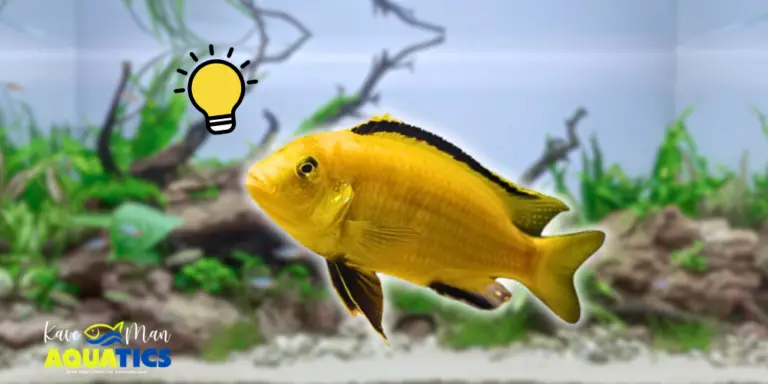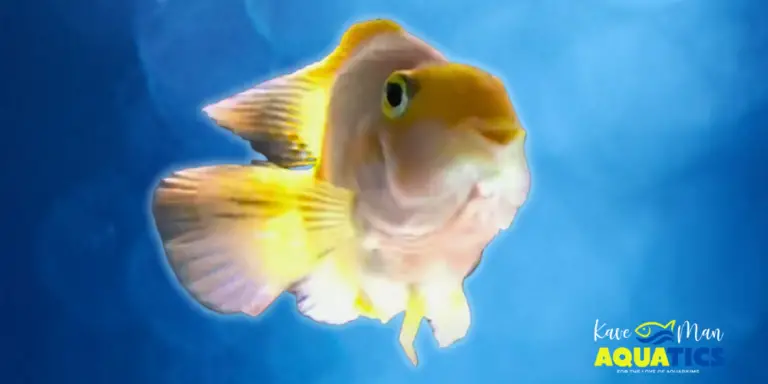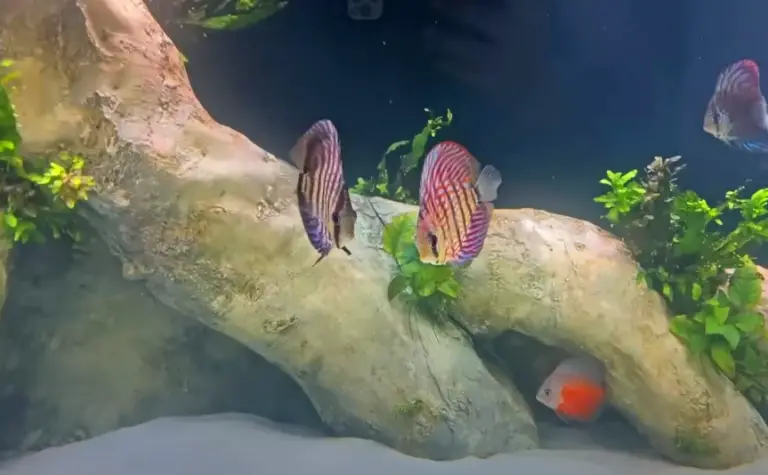10 Best Discus Fish Tank Mates (With Pictures)
As any fish enthusiast knows, choosing the right companions is crucial for a happy tank life. That’s why we’re here — to guide beginners through selecting the ideal discus fish tank mates.
In this blog, we’ve curated a list of the 10 best choices, complete with pictures, because we believe that understanding and choosing discus fish tank mates should be as delightful as watching them swim. Let’s dive in!
Discus Fish Behavior
These majestic swimmers are known for their peaceful demeanor, but there’s more to their temperament than meets the eye. Discus fish are social beings, thriving in groups and enjoying the security of their peers. They appreciate calm surroundings and are sensitive to changes in water conditions, especially temperature and pH levels.
When it comes to choosing Discus fish tank mates, it’s essential to consider factors like tank size, water parameters, and temperament. A spacious tank provides ample room for both Discus and their tank mates to establish territories and swim freely. Maintaining stable water conditions within the ideal temperature range of 82 to 86 degrees Fahrenheit and a pH level between 6.0 and 7.0 is crucial for their well-being.
Moreover, selecting companions that share similar temperament traits is vital. Discus tank companions should complement their peaceful nature, steering clear of overly aggressive or territorial species. Ensuring harmony among your discus fish tank mates means fostering a stress-free environment where each aquatic resident feels secure and comfortable in their watery abode.
Learn more about Discus fish care in our comprehensive guide.
10 Compatible Tank Mates for Discus
Here’s a curated list of compatible tank mates, each bringing unique characteristics to create a happy aquatic community.
1. Neon Tetra

Neon Tetras are small, vibrant fish known for their electric blue and red stripes that run along their sleek bodies, adding a stunning touch to any tank.
Compatibility Insights:
- Size: Up to 1.5 inches (4 cm)
- Diet: Omnivorous
- Temperament: Generally peaceful, lightly active
- Tank Size: Minimum 10 gallons (38 liters)
Neon Tetras, though small, bring lively colors to your tank. They are peaceful but might display semi-aggressive behavior during feeding or hierarchy establishment. They coexist well with Discus fish when introduced properly, provided there’s ample swimming space. Regular water changes and quality flake foods keep them vibrant and healthy.
2. Siamese Algae Eater

Siamese Algae Eaters are slender fish with a streamlined body, often recognized by their subtle gold stripes along their lateral lines.
Compatibility Insights:
- Size: Up to 6 inches (15 cm)
- Diet: Omnivorous, algae-focused
- Temperament: Peaceful, can be territorial
- Tank Size: Minimum 30 gallons (115 liters)
These algae eaters, though peaceful, might show territorial behavior around feeding spots. They’re excellent companions for Discus, focusing on algae but benefitting from algae wafers and occasional meaty foods. A well-structured tank with hiding spots ensures their comfort, contributing to a clean and harmonious tank environment.
3. Hatchetfish
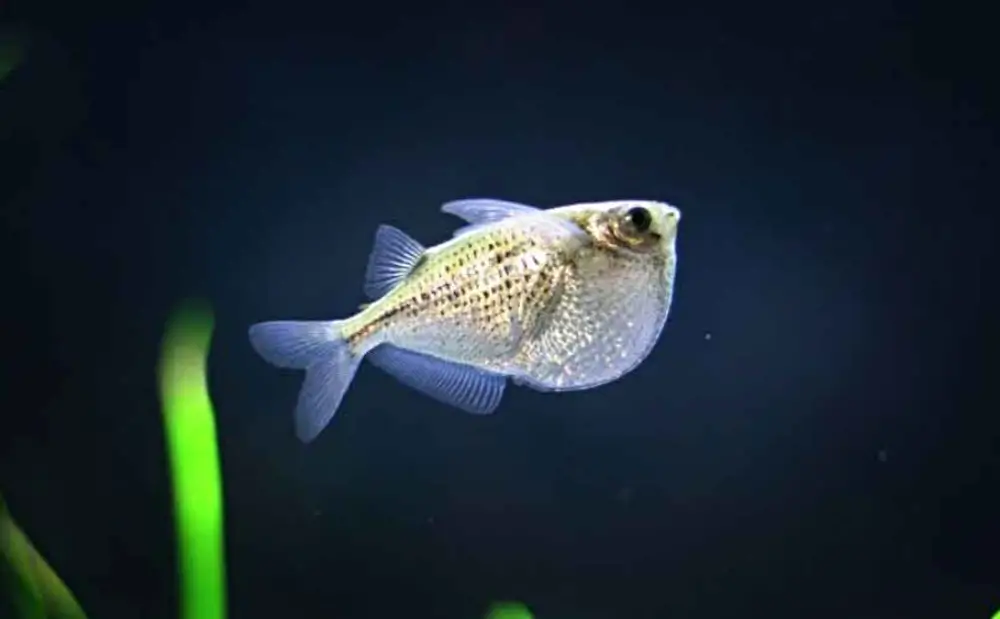
Hatchetfish possess a distinct, deep, hatchet-like body shape that distinguishes them. They’re surface-dwelling fish, showcasing unique silhouettes.
Compatibility Insights:
- Size: Up to 2.5 inches (6.5 cm)
- Diet: Omnivorous
- Temperament: Peaceful, surface dweller
- Tank Size: Minimum 20 gallons (75 liters)
Hatchetfish are predominantly peaceful but might exhibit semi-aggressive behavior, especially during feeding times. Their preference for the water’s surface minimizes interference with Discus. Providing floating plants and varied diets like flakes and small pellets ensure their well-being. Stable water conditions and regular maintenance are crucial for their health.
4. Corydoras Catfish

Corydoras Catfish are small, bottom-dwelling fish recognized by their distinct and attractive markings. Despite their colorful appearance, they maintain a peaceful demeanor.
Compatibility Insights:
- Size: 2.5 to 4 inches (6-10 cm)
- Diet: Omnivorous
- Temperament: Peaceful
- Tank Size: Minimum 20 gallons (75 liters)
These catfish are peaceful bottom dwellers, ideal companions for Discus fish. Their peaceful nature ensures a harmonious tank environment. They accept various foods, including sinking pellets and flakes, and appreciate soft substrate and hiding spots.
5. Cardinal Tetra

Cardinal Tetras are small, vibrant fish known for their striking colors, adding a lively touch to aquariums. They feature a bright red stripe running from nose to tail.
Compatibility Insights:
- Size: Up to 2 inches (5 cm)
- Diet: Omnivorous
- Temperament: Semi-aggressive
- Tank Size: Minimum 20 gallons (75 liters)
These tetras, though colorful, can display semi-aggressive behavior. However, with proper introduction and adequate space, they coexist well with Discus. Regular monitoring and varied diets ensure their well-being in the tank.
6. Rummy-Nose Tetra

Rummy-Nose Tetras are small, vibrant fish with distinctive red noses, providing a captivating visual appeal to aquariums.
Compatibility Insights:
- Size: Up to 2 inches (5 cm)
- Diet: Omnivorous
- Temperament: Semi-aggressive
- Tank Size: Minimum 20 gallons (75 liters)
Despite their peaceful reputation, Rummy-Nose Tetras can exhibit semi-aggressive behavior if not in an optimal environment. Proper introduction, spaciousness, and varied diets ensure their peaceful cohabitation with Discus fish.
7. Bristlenose Pleco
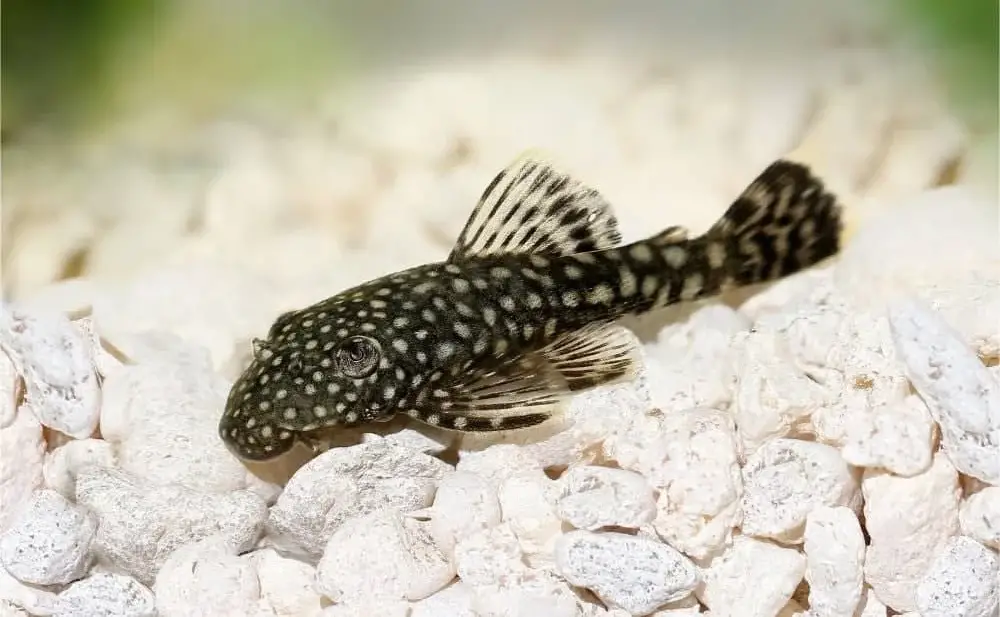
Bristlenose Plecos are small fish known for their unique bristles around their mouth and armored-like plates covering their body.
Compatibility Insights:
- Size: Up to 6 inches (15 cm)
- Diet: Herbivorous/Algae eater
- Temperament: Peaceful, but territorial
- Tank Size: Minimum 30 gallons (115 liters)
These bottom-dwelling Plecos are peaceful tank mates for Discus. While they can be territorial around hiding spots, they generally coexist well. They require a diet rich in vegetables and algae, and ample hiding spaces for comfort.
8. Harlequin Rasbora

Harlequin Rasboras are small, colorful fish known for their distinct triangular black markings, adding vibrancy to aquariums.
Compatibility Insights:
- Size: Up to 2 inches (5 cm)
- Diet: Omnivorous
- Temperament: Peaceful, slightly active
- Tank Size: Minimum 20 gallons (75 liters)
These Rasboras are generally peaceful, though they establish a pecking order within their school. They coexist well with Discus when introduced properly, needing sufficient space and a varied diet to thrive.
9. Siamese Algae Eater

Siamese Algae Eaters are streamlined fish appreciated for their algae-eating habits and sleek appearance.
Compatibility Insights:
- Size: Up to 6 inches (15 cm)
- Diet: Omnivorous, algae-focused
- Temperament: Peaceful, can be territorial
- Tank Size: Minimum 30 gallons (115 liters)
These algae eaters benefit Discus tanks by consuming algae. While peaceful, they can become territorial around feeding areas. Ensuring varied food sources and ample space in the tank encourages their compatibility with Discus fish.
10. Celestial Pearl Danio

Celestial Pearl Danios are small, striking fish with shimmering colors resembling pearls, featuring eye-catching patterns on their bodies.
Compatibility Insights:
- Size: Up to 1 inch (2.5 cm)
- Diet: Omnivorous
- Temperament: Peaceful, active
- Tank Size: Minimum 10 gallons (38 liters)
These petite, peaceful fish are a wonderful addition to a Discus tank. With their small size, they thrive in planted aquariums and coexist harmoniously with Discus, provided they have ample space for their active swimming behavior. Offering varied diets, they contribute to the diversity and vibrancy of the tank.
11. Bonus! Arowanas?
It’s theoretically possible to keep Arowanas and Discus fish together in a large enough tank with careful planning and consideration of their distinct needs.
Disclaimer: It’s important to note that Arowanas and Discus fish have significantly different care requirements and temperaments. Arowanas are large, active, and can be predatory, whereas Discus fish are peaceful and prefer calmer environments. Due to these differences, it’s generally advised not to keep them together in the same tank. Arowanas need much larger tanks with ample space for swimming and might see smaller fish like Discus as potential prey.
Always keep these several factors into account regarding Arowana care:
- Tank size: Arowanas require significantly larger tanks than Discus due to their size and swimming behavior. Arowanas can grow quite large (up to 4 feet), so a tank of several hundred gallons would be necessary to accommodate them comfortably.
- Compatibility: Arowanas can be predatory and might see smaller fish like Discus as potential prey, especially if they can fit in the Arowana’s mouth. Some Arowanas can be more aggressive than others, and their behavior can vary based on individual temperament.
- Water parameters: Both species have different preferences for water conditions. Discus prefer warmer, softer, and more acidic water, while Arowanas can adapt to a broader range but generally prefer neutral to slightly acidic water.
- Tank environment: Providing plenty of hiding spaces, plants, and dividers in the tank might help mitigate potential aggression or predatory behavior.
- Monitoring: Close observation of their interactions is crucial. If signs of stress or aggression are observed, it’s essential to have a backup plan or separate the fish into different tanks.
Discover More Tank Mates With Aquabuildr!
Remember, thoughtful selection and gradual introductions ensure a thriving tank dynamic. As you embark on this journey, observe their interactions closely.
For further assistance in exploring compatible tank mates beyond discus fish, try Aquabuildr — a smart app that simplifies aquarium planning.
With its intelligent algorithm, Aquabuildr tailors recommendations based on essential parameters, ensuring a balanced ecosystem. Create custom tanks effortlessly and access essential tank details. Download the app from the Google Play Store or Apple App Store for FREE!
-
10 Best Discus Fish Tank Mates (With Pictures)
Discover the ideal companions for your Discus fish tank mates! Explore top-notch discus fish tank mates in our guide filled with visuals and expert insights.
